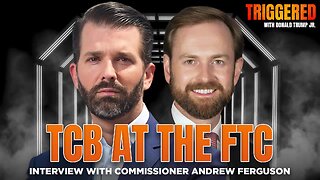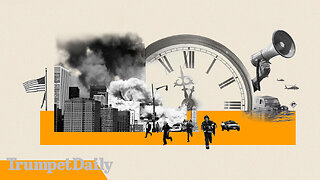Premium Only Content

#408 Digital
"Digital" refers to the representation and manipulation of information using discrete elements, typically expressed in terms of binary code (0s and 1s). In a broader sense, it encompasses a wide range of technologies and processes that involve the use of digital data.
Key Concepts:
Binary Code: At the core of digital technology is the binary system, where data is represented using combinations of 0s and 1s. This binary code forms the basis for digital information storage and processing.
Digitalization: The process of converting analog information into digital format. This transformation enables efficient storage, transmission, and manipulation of data. Examples include digitizing text, images, and audio.
Digital Technology: Encompasses a vast array of technologies, including computers, smartphones, digital cameras, and more. These devices process and transmit information in digital form, enabling a wide range of applications.
Digital Communication: The transmission of data in digital form over networks. This includes the internet, mobile networks, and other communication channels. Digital communication allows for fast and reliable exchange of information.
Digital Media: Refers to content that is stored and transmitted in digital format. This includes digital images, videos, music, and other multimedia forms. Digital media has become integral to entertainment, communication, and information sharing.
Digital Transformation: The adoption and integration of digital technologies into various aspects of society, business, and culture. This transformation is characterized by the use of digital tools to enhance efficiency, connectivity, and innovation.
Digital Security: The protection of digital systems, networks, and data from unauthorized access, attacks, and damage. This includes cybersecurity measures to ensure the confidentiality, integrity, and availability of digital information.
Artificial Intelligence (AI) and Machine Learning: Advanced technologies that use digital algorithms to enable machines to perform tasks that traditionally required human intelligence. These technologies are driving innovation in various fields.
Internet of Things (IoT): The interconnection of everyday devices to the internet, allowing them to send and receive data. This enables smart homes, cities, and industries, creating a network of interconnected digital devices.
Blockchain and Distributed Ledger Technology (DLT): Technologies that enable secure and transparent recording of transactions in a decentralized manner. Blockchain, for example, is the underlying technology for cryptocurrencies like Bitcoin.
Understanding the fundamentals of digital technology is crucial in the modern era, as it underpins many aspects of our daily lives, from communication and entertainment to business and innovation.
https://antharas.co.uk/
https://www.paypal.com/paypalme/AVCORPORATELTD?country.x=GB&locale.x=en_GB
-
 11:19
11:19
AV
8 months ago#1150 Press release - UK and Poland green exports with€249 million financing
291 -
 1:09:10
1:09:10
The Daily Signal
1 hour ago🚨 LIVE: Democrats Melt as Their Media Burns Down
44 -
 LIVE
LIVE
LIVE WITH CHRIS'WORLD
11 hours agoLIVE WITH CHRIS’WORLD - Trump is ALWAYS 10 Moves Ahead!
81 watching -
 40:41
40:41
Donald Trump Jr.
6 hours agoTCB at the FTC, Interview with Commissioner Andrew Ferguson | TRIGGERED Ep.239
78.1K30 -
 59:51
59:51
BonginoReport
4 hours agoPresident Trump Triggers The Libs with Jokes and Memes - (Ep. 41) - Nightly Scroll with Hayley
32.3K44 -
 1:17:50
1:17:50
Kim Iversen
3 hours agoIsrael First: Congress Almost Criminalized Free Speech Today | Why the West Wants This African Leader DEAD
65.3K76 -
 DVR
DVR
LFA TV
1 day agoLast Hour Urgency | TRUMPET DAILY 5.5.25 7PM
6.59K1 -
 1:05:59
1:05:59
2 MIKES LIVE
10 hours ago2 MIKES LIVE #212 Deep Dive Monday!
3.91K1 -
 1:28:26
1:28:26
vivafrei
7 hours agoTrump to PAY Illegals to LEAVE? Bill to Ban Boycott PULLED? "Terror" Attack Foiled in UK & MORE!
100K35 -
 1:10:12
1:10:12
Tucker Carlson
3 hours agoBen of Ben & Jerry’s Exposes the Motives Behind War With Russia & the Politicians That Sold Out
75.7K101